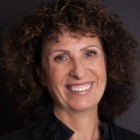Panel Presentation SKL240
Global Trends, National Insights and Local Cases: Education for Industry 4.0
Date Friday, Nov 29 Time – Room: Tiergarten
National curricula all around the world have changed dramatically. Cases presented here will show how we are moving from an abstract skills gap discussion to implementing new educational initiatives which meet industry-specific competence levels. So join us to hear how, for all learners and all around the world, new frameworks and new curricula are designed successfully!

Tarkan Gürbüz
Instructor, Middle East Technical University (METU), Turkey
Tarkan Gürbüz is currently an Associate Professor in the Department of Computer Education and Instructional Technology at Middle East Technical University (METU) in Ankara, Turkey.
He is a member of the coordinating committee of METU-BİLTİR Center Digital Transformation/Industry 4.0 Platform. He is the Representative of METU and Turkey in the Global Development Learning Network (GDLN) European Central Asia Region.
He is a member of the Distance Education Standards Committee of Turkish ICT Foundation. He is also a member of Informatics Association of Turkey. He received his BSc. in Mathematics, PhD and MSc in Computer Education and Instructional Technology from METU. He also received an MBA in International Business from MIB School of Management in Italy.
His areas of research interest include distance education, open and distance learning, e-learning, innovative next generation learning environments, digital transformation, industry 4.0, knowledge management and adult education.
Links

Alexander Zumdieck
Deutscher Bundestag, Future of Work at the Unionsfraktion, Germany
Dr. Alexander Zumdieck runs the think tank on the future of work for the Union-faction in the German parliament (Bundestag). After completing his PhD in theoretical, biological physics, he joined McKinsey in its business technolog office and served clients in Europe, North America, Africa and the Middle East out of Berlin, New York and. Dubai.
In 2012 he left McKinsey to co-found payleven, a startup in the mobile payment space, active in 10 European countries and Brazil. He is fascinated by innovating the way especially large organizations work and has helped e.g., the fashion retailer Zalando (in pricing) and the wholesaler Metro (in innovating with startups).
In 2018 he joined the Bundestag to direct the think tank on the future of work by CDU/CSU. As continuing education is a central piece in the puzzle on how we deal with thee challenges presented by digitization and demografics, one central question tackled has been, how to organize continuing education for a whole country?
The think tank has proposed a concept called MILLA - modular interactive life-ling learnig for all, that is currently discussed in the political process.
Links

Christina Soegaard Jensen
Lecturer, Business Academy Aarhus, Denmark
MA. Christina Soegaard Jensen is senior lecturer and project manager at Business Academy Aarhus, Denmark. Her focus is on the rapidly emerging skill gaps that forges digital upgrades of existing curriculums and the development of suitable didactics accordingly.
Christina is initiator and project manager of the research project Datacompetent Students. The project ensures a consistent line for teaching basic data competence across the diverse programmes and diciplines at the academy. Besides managing the research project Christina teaches both fulltime students and professionals enrolled for vocational training in the field of digital communication. She has both an extentive industry and teaching experience and is a coauthor of books and publications within innovation and communication.
In Denmark, Christina has given several talks og held seminars in the education sector on how to build in data competence in curriculums not previously reliant on data.
Links

Kirill Barannikov
Head, Moscow City University, Russia
Kirill Barannikova is head of the department of strategic growth in Moscow City University (MCU, www.mgpu.ru). MCU - is one of the leading teacher university in Russia. Working in MCU Kirill has led a number of project for Moscow schools and Moscow government.
Among the most striking projects are the online platform for teachers to create curricula (www.prok.edu.ru), the electronic platform for assessing the quality of the educational environment (www.ecers.ru, www.sacers.ru), internet service for supporting and developing initiatives (www.zamisli.pro).
Over the past ten years, Kirill headed the center for distance education of children with disabilities of the Pedagogical Academy of Postgraduate Education, the center of curricula design and standards of the Academy of Social Management, was deputy director at the Institute of System Projects of MCU. He coordinated over 40 research of the Department of Education of the City of Moscow, the Ministry of Education and Science of Russia.
In 2016-2019, he coordinated several big researches about the national models for school curricula regulation, competency models. The main areas of interest are competency models in school education, issues of standardization and curricula design in an international context, change management in schools and universities.
Links
https://www.mgpu.ru/employees/767
Moderator

Gila Kurz
Head of M.A. Program, Holon Institute of Technology (HIT), Israel
I am Dean of the Instructional Technologies faculty at Holon Institute of Technology (HIT) in Israel.
From 2001 -2011, I served as an Adjunct Professor at The University of Maryland University College (UMUC) Graduate School at the Master of Distance Education and E-learning Program.
Other positions were: head of interactive television satellite-based unit at the Open University of Israel (OUI) and a director of an e-learning center at Bar-Ilan University in Israel. Also, I was the Academic Vice President of a company that provided e-learning solutions for the corporate industry.